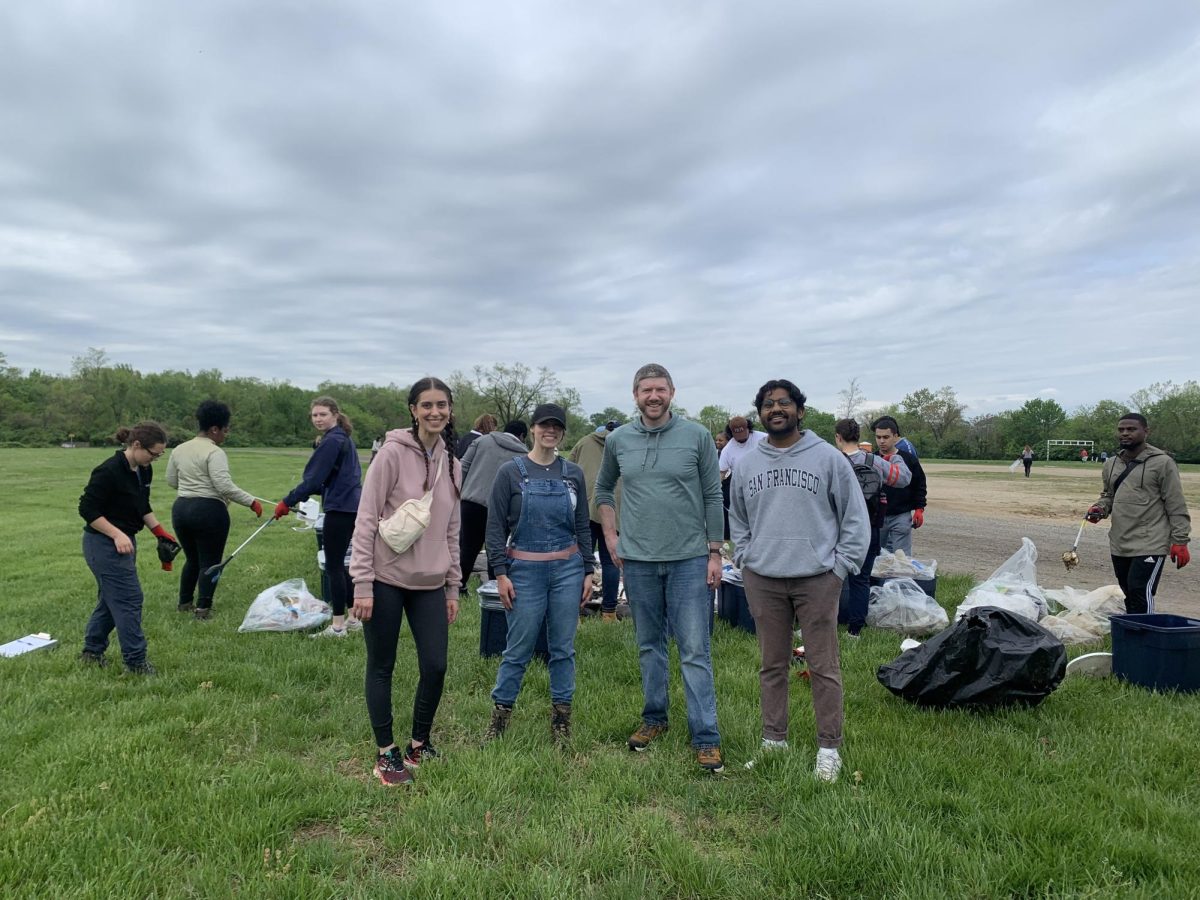
Alfredo Carrillo is a staff writer for The Hoya
President Donald Trump’s administration has not devoted enough attention to issues affecting the LGBTQ community in America, counsel and HIV project director at Lambda Legal and former member of the Presidential Advisory Council on HIV/AIDS Scott Schoettes said at a keynote Thursday.
Schoettes, who is openly HIV-positive, resigned from the advisory council along with five colleagues in June after months of uncertainty about his position following Trump’s election.
“During the election, it became clear that candidate Trump was not interested in engaging with us or talking to us,” Schoettes said. “HIV advocates met with the Clinton campaign, and with the Sanders campaign, and got to talk about HIV and how they would handle things if they became president. Trump, no.”
Most of the councilmembers stayed on the council believing that they could do good, according to Schoettes, despite discouraging actions from the White House, including eliminating all references to the Office of National AIDS Policy from its website.
“I decided, along with other people, to stick around because there was an opportunity to do good,” Schoettes said. “There was an opportunity to shape what the administration was doing and what they were thinking. Yes, I disagreed with them and their philosophy and so much of what they stand for but, maybe I can do some good.”
Trump’s management of the effort to repeal the Affordable Care Act, however, proved the tipping point for Schoettes. It was a sign of the President’s disengagement with his policies and the people they were affecting, Schoettes said.
“In that process, it became clear to me that we had a president who really didn’t care what that repeal looked like. He just wanted a deal. He wasn’t engaged in the actual mechanics of how to make this work,” Schoettes said. “Enough, I finally came to a point where I felt like I could not advise a president on policy who’s not actually engaged in thinking about diplomacy.”
With HIV/AIDS becoming a disease of the unprivileged — with women of color, impoverished and transgender individuals being the most affected by the stigma and the lack of access to treatment — Schoettes said he valued his closeness to the Obama administration and its healthcare policies.
“We were making progress, that’s the encouraging thing. As I came on to the PACHA, we were starting to see actual changes. We had more people engaged in care, more people receiving anti-retroviral therapies and more people virally suppressed,” Schoettes said. “It was exciting because we felt like we were actually helping to make policy.”
Schoettes said he did not want his resignation to go unnoticed – after communicating his decision to the rest of the group, he waited for at least four other members who would follow him.
“I believed that by leaving — and if I could leave and make a big enough noise when I left, which I did by getting five people to come with me — then we could maybe force this a little bit into the dialogue,” Schoettes said.
Additional resignations have reduced PACHA to less than half of its total membership and no one has been appointed yet to lead the Office of National AIDS Policy.
Though the White House has recently played lip service to the issue, for instance by issuing a statement during National HIV Testing Day on June 27, Schoettes said Trump’s confidantes, including Vice President Mike Pence, Attorney General Jeff Sessions and Secretary of Health and Human Services Tom Price, continue to exert a conservative influence on his political beliefs.
In August, the White House announced it was moving forward with a ban on transgender people serving in the military, a policy Schoettes said may have been influenced by some of Trump’s hard right advisers.
“I think some of these policies we’re seeing now, I’d say, transgender people in the military, that’s been influenced by the other cabinet members,” Schoettes said.
Schoettes called for increased activism at the national, state and local levels.
“The places I think where advocacy can be done are with Congress, so really important that they continue to fund all the work that HHS is doing,” Schoettes said. “And then, at the more local level, there’s work to be done at the state level. There’s work to be done on Medicaid expansion. That would be a huge thing for this population.”
This article has been updated.




















